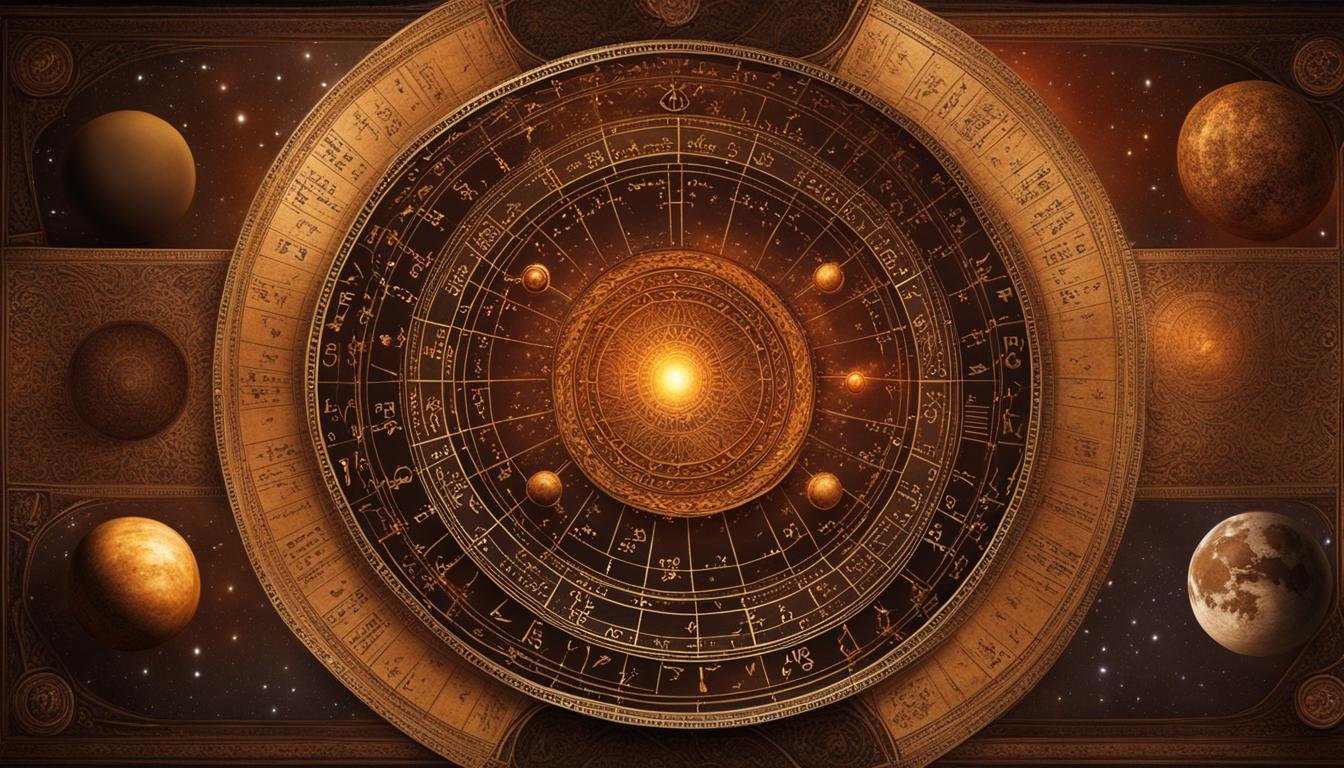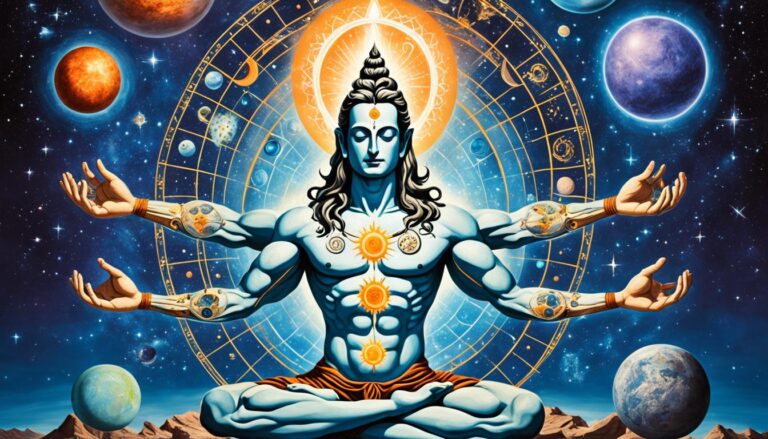Why Is Vedic Astrology More Accurate?
Have you ever wondered why Vedic astrology is more accurate than other forms of astrological practices? It’s not just about foreseeing your future with a crystal ball; it’s an ancient system steeped in tradition and precision. Vedic Astrology, also known around the world as Jyotisha, stands out for its remarkable accuracy that has been refined over millennia. This precision is not simply coincidental; it is the fruit of dedication and a profound connection with spirituality that Vedic practitioners, or Jyotishis, have cultivated over generations.
As you dig deeper into this celestial science, you’ll uncover the substantial benefits of Vedic astrology—from personalized predictions to making cultural and governmental decisions in many parts of the world. Especially in India, Vedic astrology isn’t just a tool; it’s a guiding force in societal norms, influencing how people navigate life’s milestones, from births to marriages. Let’s embark on an expedition through the cosmos, exploring the intricate fabric of Vedic wisdom that could hold the key to unlocking the mysteries of your life with unparalleled precision.
Key Takeaways
- Vedic astrology’s roots in ancient practices contribute to its precision and excellence.
- The integration of astrology into the fabric of Indian culture enhances its significance and reliability.
- Consultations with experienced Jyotishis offer personalized insights, going beyond generic predictions.
- Vedic astrology’s nuanced divisional charts enable an in-depth analysis of various life aspects.
- Emphasis on timing techniques like Vimshottari dashas enhances the accuracy of forecasting life events.
The Historical Foundations of Vedic Astrology
When you explore the underpinnings of Vedic astrology, you’re delving into a spiritual legacy that has withstood the test of time, shining a light on the human experience for thousands of years. This profound historical context sets the stage for understanding the scientific basis of Vedic astrology, making it distinct from its Western counterpart.
A Millennia-Old Legacy and its Continuous Practice
Imagine a tradition so enduring that its origins are lost in the mist of time, believed to date back to as far as 10,000 BC. This is the realm of Vedic astrology, emerging from the depths of the Indian sages’ wisdom and crystallized in the Four Vedas. Spanning more than 5000 years of continuous practice, the principles of Vedic astrology connect you to an unbroken chain of spiritual insight and cosmic understanding, reflecting the ancient knowledge of the divine interplay between the stars and human destiny.
Integrative Role of Astrology in Indian Society and Culture
The fabric of Indian society is intricately woven with strands of astrological wisdom, integrating Jyotish into its cultural and philosophical tapestry. Unlike the relationship of vedic astrology vs western astrology, where the latter often stands apart from daily life, Vedic astrology is deeply rooted in the Indian worldview. It is a spiritual compass that guides its followers through life’s ebbs and flows, framed by mantras, rituals, and an in-depth understanding of karma and dharma.
The Comprehensive Techniques of Vedic Astrology
Delving into the world of Vedic astrology, you’ll find that its power lies in the accuracy of its predictions and the precision of its system. The heart of this ancient practice is its unique analytical tools that extend far beyond the basic horoscope, providing insights into the intricate details of an individual’s life. The following in-depth techniques are what make Vedic astrology renowned for its detailed and accurate forecasts.

Divisional Charts (Varga) and Their Significance
In Vedic astrology and precision go hand in hand, particularly through the use of divisional charts, or Varga. These charts dissect various aspects of life, offering a microscopic view into areas including relationships, professional paths, and spiritual journeys.
- Dasamsa (D10) Chart for career and accomplishments.
- Navamsa (D9) Chart for marriage and partnerships.
- Shodashamsa (D16) Chart for vehicles and travels.
Each Varga chart is a crucial piece of the puzzle, contributing to the overall accuracy of Vedic astrology predictions and providing you with a precise life map tailored to your individual circumstances.
Advanced Predictive Methods: Vimshottari Dashas
The Vimshottari dashas system is a crown jewel when it comes to Vedic astrology and accurate predictions. It breaks down your life into planetary periods, each ruled by a different planet, hence fine-tuning the timing of events down to days and hours. It acts as a celestial timetable, giving exact periods when certain themes or challenges might emerge in your life.
- Mahadasha (major period) for extensive life phases.
- Antardasha (sub-period) for inner, more specific cycles.
- Pratyantardasha (sub-sub-period) for short-term influences.
Through this method, Vedic astrology can pinpoint significant turns in your life’s journey, enhancing the accuracy of its guidance and fortifying the trust you can place in its predictions.
The Commitment to In-Depth Analysis Through Extended Readings
For those seeking more than surface-level insights, Vedic astrology’s commitment to in-depth analysis is a testament to its efficacy. It’s not uncommon for readings to unfold across multiple sessions, each revealing deeper layers of your life’s purpose.
- Initial consultation to explore the basic birth chart.
- Follow-up sessions diving into Varga details.
- Future appointments focusing on upcoming dashas and transits.
The dedication of both the astrologer and the client in this journey reflects a mutual goal: the pursuit of understanding one’s karmic blueprint with precision and accuracy. This level of engagement ensures that the accuracy of Vedic astrology predictions consistently meets – and often exceeds – expectations, forging a pathway towards a harmonious alignment with the cosmic tapestry.
Why Is Vedic Astrology More Accurate
You may have wondered why a growing number of people consider Vedic astrology more precise than other forms of astrological practice. The prevailing view attributes this higher accuracy to its complex approach and the deep spiritual principles it encompasses. Vedic astrology doesn’t offer a generic reading; instead, it offers a reading that’s as dynamic and individual as you are.
- By utilizing the sidereal zodiac, Vedic astrology aligns your chart with the actual positions of constellations, not a fixed, unchanging system like the tropical zodiac. This captures the movement and progression of heavenly bodies as they are in real time.
- The detailed methodologies of Vedic astrology reflect the spiritual map of dharma (duty) and karma (action and reaction), offering insights that guide your spiritual and practical life.
- This ancient system believes in the influence of celestial bodies on human affairs. Vedic astrologers meticulously calculate these influences to provide personalized readings that resonate more deeply with the individual’s life experiences and potential pathways.
Imagine your life mapped against the cosmos with an accuracy that considers not only your birth details but the ongoing cosmic dance of planets and stars. This is the essence of Vedic astrology’s living universe philosophy – your life in sync with a universe that is vibrant and full of changes.
In embracing the intricate and ever-changing patterns of stars and planets, Vedic astrology allows for an interpretation of your life that is far more tailored and specific than you might find elsewhere. With personalized and accurate insights, it’s no wonder that so many are turning to Vedic astrology for understanding the complex interplay between the celestial and the terrestrial.
Vedic vs. Western Astrology: Understanding Core Differences
When you’re delving into the world of astrology, the distinctions between the Vedic and Western systems can appear subtle, but they are significant. Unraveling these differences can greatly influence your path to self-discovery and guide you in why to choose Vedic astrology for personalized insights.
Contrasting Approaches to Zodiac and Calendar Systems
At the core of Vedic astrology lies the sidereal zodiac, which factors in the ayana— the precession of the Earth’s rotational axis. This adjustment allows a closer synchrony with the actual compass of the stars, giving ammunition to the claim of Vedic astrology’s greater connection with celestial movements compared to its Western counterpart.
In contrast, Western astrology adheres to the tropical zodiac and is oriented around the equinoxes and solstices, framing sun signs as seasonal phenomena. While Vedic astrology’s focus is on both the moon and ascendant signs, Western astrology’s spotlight on the sun sign shapes its broader appeal.
Divergent Calculations: Planetary Influence and House Systems
The benefits of Vedic astrology are further highlighted through its meticulous attention to detail, considering the exact time and not just the date of birth. This precision leads to more refined and tailored predictions, laying out a life chart with astonishing detail.
Unique to Vedic astrology are the lunar nodes Rahu and Ketu, deemed deeply influential in carving out one’s karmic map. These points, representing the intersections of the moon’s path with the ecliptic, are often omitted in Western astrology, potentially overlooking critical aspects of the cosmic influence on an individual’s life.
The house system, too, is a terrain of difference. Vedic astrology employs the whole-sign house system, directly aligning each house with a whole zodiac sign for a clear and direct correlation. Western astrology, with its diverse house systems, most notably the Placidus system, uses the longitudinal degrees of the Ascendant for defining the houses, which can result in a more complex, but also potentially more subjective, interpretation.
Embracing the system of Vedic astrology invites you into an ancient tradition woven into the very fabric of time, connecting you with a lineage of cosmic wisdom that has guided countless generations. Your exploration is not just about predictions but also about aligning with spiritual insights and the rhythm of the universe. The decision for why choose Vedic astrology over Western astrology may very well lie in its timeless appeal and its ability to resonate with one’s personal pursuit for deeper understanding.
The Spiritual Essence and Scientific Basis of Vedic Astrology
As you delve deeper into the realms of Vedic astrology, you uncover a rich tapestry where ancient wisdom meets scientific precision. Contrary to popular belief, this age-old system has a robust scientific basis, drawing from real-time astronomical observations and maintaining a steadfast alignment with the sidereal zodiac. This alignment mirrors the universe more closely than the Western tropical zodiac, accounting for the precession of the equinoxes to maintain vedic astrology accuracy.
Connection with Yoga, Ayurveda, and Spiritual Practices
Vedic astrology isn’t just about predicting your future; it’s an integral part of a holistic lifestyle. To understand your life’s journey through Vedic astrology is to connect with the timeless principles of yoga and Ayurveda—disciplines that advocate for the balance of body, mind, and spirit. The accuracy of Vedic astrology predictions often resonates with those seeking a harmonious and spiritually aligned way of living.
Alignment with Astronomical Observations and Sidereal Zodiac
The celestial dance of planets and stars is meticulously charted in Vedic astrology, reflecting a cosmic map that guides individuals towards personal growth and enlightenment. By firmly rooting its practices in the sidereal zodiac, Vedic astrology offers a unique perspective on your personal narrative, one that is in perfect harmony with the astronomical truths of our universe. This sophisticated approach underscores not only the accuracy of Vedic astrology predictions but also its commitment to upholding scientific integrity alongside spiritual beliefs.
Conclusion
In conclusion, the allure of Vedic astrology doesn’t merely lie in its antiquity; it is enhanced by its distinctive cultivation of intricate techniques and its undeniable interweaving with spiritual science. Its framework is rich with tradition, thriving on the foundational tenets of karma and dharma, which not only offer spiritual context but also empower the astrological insights to resonate on a deeply personal level.
The precision of Vedic astrology is elevated by its comprehensive approach that harnesses the sidereal zodiac, aligning closely with actual astronomical observations. Unlike Western astrology, which might appear static in its application, Vedic astrology evolves with the cosmos, maintaining an up-to-date reflection of the skies. This dynamic aligns with those individuals who seek a more nuanced and spiritually congruent guide in navigating their life’s journey.
If you’re gravitating towards a system that offers a more robust, spiritually integrated perspective, Vedic astrology presents itself as a venerable choice. Its ability to offer profound insights into the multifaceted paths we walk through life is not only a testament to its time-tested methodologies but is also evocative of a profound understanding of human existence in relation to the universe. As you consider delving deeper into the world of celestial divination, Vedic astrology stands as a beacon of ancient wisdom, ready to illuminate the intricate interplay between the stars and your unique passage through life.
FAQ
Why is Vedic astrology considered more accurate than other forms of astrology?
Vedic astrology is thought to be more accurate due to its extensive use of meticulously detailed divisional charts, the precise timing techniques of Vimshottari dashas, and its close adherence to real-time astronomical observations. Its consistency in practice and deep-rooted spiritual and scientific connections also contribute to its accuracy. Moreover, it uses the sidereal zodiac which is aligned with actual constellations, leading to personalized and precise insights.
What are the historical foundations that contribute to Vedic astrology’s accuracy?
The accuracy of Vedic astrology is deeply influenced by its rich historical legacy, dating back thousands of years to the time of the Indian sages and the Four Vedas. Its continuous and consistent practice over millennia, along with its integration into Indian society and culture, has helped hone its techniques for precise predictions and guidance.
How do the comprehensive techniques of Vedic astrology provide more precise predictions?
Vedic astrology’s divisional charts dissect various aspects of life, offering granular insights, while the Vimshottari dasha system predicts life events with remarkable precision. Extended readings allow astrologers to thoroughly analyze a person’s life path and destiny, which contributes to the high accuracy of Vedic astrology predictions.
What makes Vedic astrology’s approach to predictions detailed and complex?
Vedic astrology factors in a multitude of variables—such as the sidereal zodiac that reflects actual celestial positions, the intricate divisional charts, and the timing techniques like dashas and transits—making its approach to predictions highly detailed and complex. This allows for personalized readings that closely mirror the dynamism of the universe and human life.
What are the core differences between Vedic and Western astrology?
The primary differences lie in the zodiac systems used—Vedic astrology uses the sidereal zodiac, while Western astrology uses the tropical zodiac. Vedic astrology emphasizes the moon and ascendant signs and incorporates the lunar nodes, Rahu and Ketu. In contrast, Western astrology focuses on sun signs and seasonal equinoxes. Calculations of planetary influences and house systems also diverge significantly between the two traditions.
How does Vedic astrology align with yoga, Ayurveda, and other spiritual practices?
Vedic astrology is intricately linked with spiritual practices like yoga and Ayurveda, reflecting a holistic view of well-being that considers astrological influences on physical, mental, and spiritual health. It values balance and harmony, much like these other Indian practices, creating a comprehensive approach to life and wellness.
What is the scientific basis for the accuracy of Vedic astrology predictions?
The scientific basis of Vedic astrology lies in its close alignment with astral movements and the sidereal zodiac system it employs. This system is synchronized with actual cosmic positions, taking into account the precession of the equinoxes, which affords a level of detail and precision not found in the tropical zodiac used by Western astrology.








